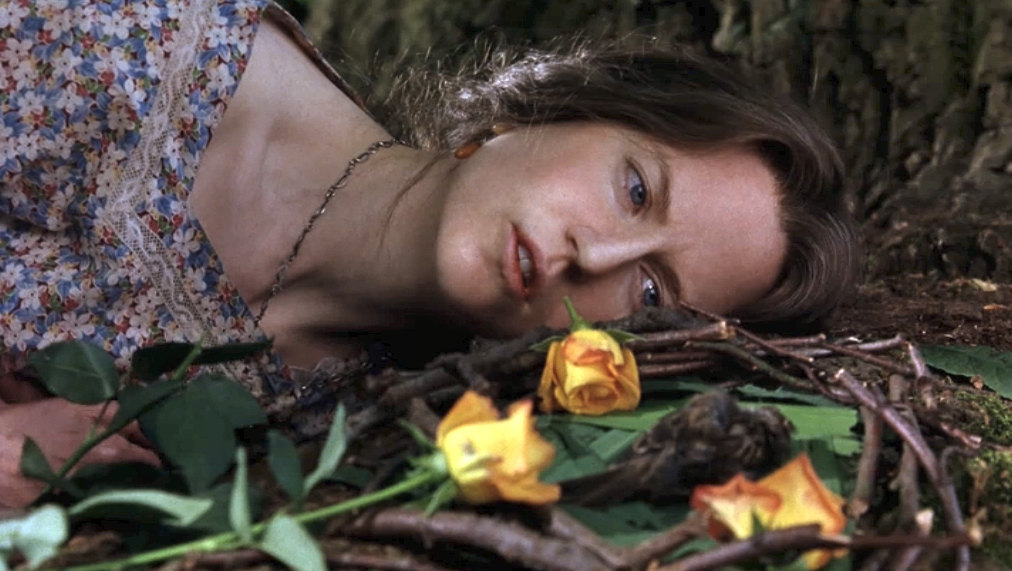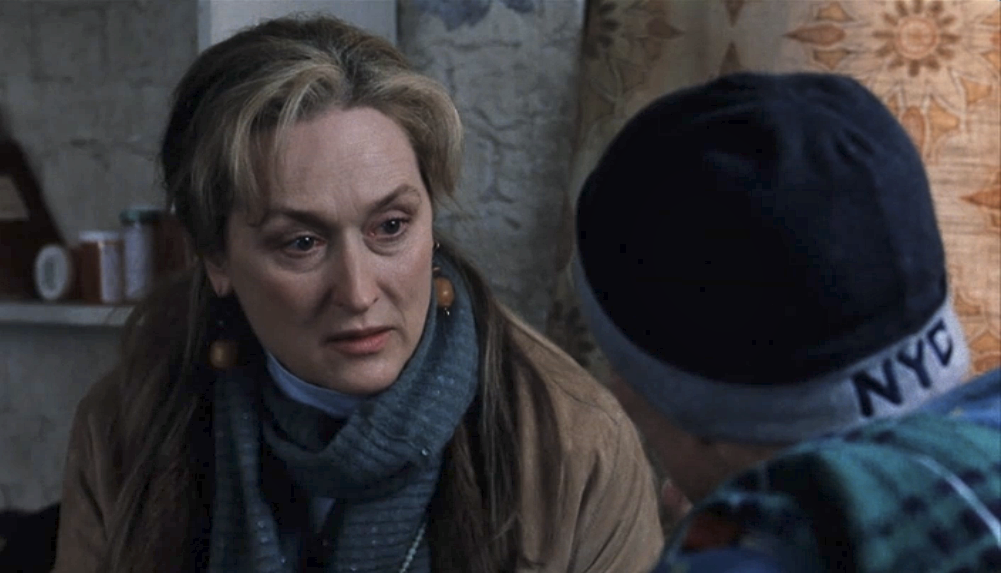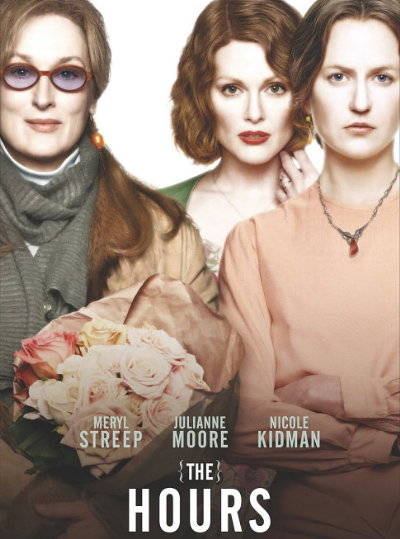The Hours
The Hours (2002) is a sad, thoughtful movie filled with powerful women. Only, they don’t seem powerful at first. Instead they come across as complacent, frazzled, and confused, but in the end they find what they’re looking for, and it isn’t what you’d expect them to find either.
The movie opens on Virginia Woolf, writing her goodbyes into letters before she walks into the woods and fills her pockets with rocks. Foreshadowing at it’s most obvious, she writes to her husband, “Everything is gone from me but the certainty of your goodness. I can’t go on spoiling your life any longer. I don’t think two people could have been happier than we have been.”
The rest of the movie’s beginning works to thrust you into the lives of three women – Virginia Woolf in 1923 played by a very intense Nicole Kidman, Julianne Moore as Laura Brown in 1951, and Clarissa Vaughan in 2001, played by the ever fabulous Meryl Streep.
Phillip Glass wrote the movie’s cascading piano melodies that rush the film along and link the women’s lives together. At the beginning we quickly flip between time periods – we hear three different ages of alarm clocks go off as the women awake in their own time. We follow them through one day alone; three days in three decades that are all somehow linked to Virginia Woolf’s book Mrs. Dalloway.
Behind each woman’s eyes is a kind of emptiness, a longing for something more, for that elusive feeling of happiness that keeps slipping through her fingertips. This movie does an incredible job of capturing that feeling, that hollow feeling that makes the absoluteness of death seem less scary. Clarissa’s storyline in New York city is cast in a gray light that makes our modern age seem bleak and weary. But somehow the brightness of the 1950s and even the vivid nature scenes in the 1920s work to emphasize the unhappiness that our protagonists are stuck in. Even when Laura Brown has her lips painted red, her eyes still well up with tears and her mouth breaks into a silent cry when no one is looking.
One of the most beautiful scenes comes when Virginia buries a bird with her little niece who came to visit. Even though age and experience separates them, the two girls have an understanding, the little girl can just sense the sadness within the woman who lives more for the characters in her book than for herself.
“What happens when we die?” the little girl asks her.
“We return to the place where we came from.”
“I don’t remember where I came from.”
“Nor do I.”
More than anything though, this movie is intense, slowly building up to an ending you can’t guess at until it arrives. There are scenes of sexual confusion that arise out of desperation, and abrupt closeups of little things that shouldn’t matter, like trash cans when things get thrown into them and eggs as they’re cracked into a bowl.
One of my favorite quotes comes from Meryl Streep’s character Clarissa, who tells her daughter:
“I remember one morning getting up at dawn, there was such a sense of possibility. You know, that feeling? And I remember thinking to myself: So, this is the beginning of happiness. This is where it starts. And of course there will always be more. It never occurred to me it wasn’t the beginning. It was happiness. It was the moment. Right then.”
You can stream The Hours on Netflix Instant, and read more about it on the IMDB page.








